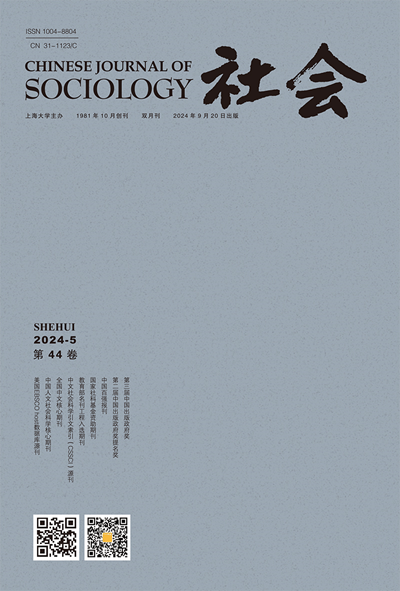Living with grandparents: Multi-generational families and the academic performance of grandchildren in China
IF 1.8
4区 社会学
Q2 SOCIOLOGY
引用次数: 6
Abstract
Previous studies on social stratification and intergenerational mobility have mostly focused on the effects of parents on their children’s socioeconomic status (SES) attainment, but less attention has been paid to the important role played by grandparents in the life chances of their grandchildren, and its underlying mechanism. By analyzing a national survey sample data of junior high school students in China, this study examines the influence factors of living with grandparents and their effect on the academic performance of adolescents, and the intermediate mechanism. The study finds that (a) three-generation cohabitation occurs when there is a functional need for the nuclear family, and children with lower SES, working mothers, or single-parent families are more likely to experience cohabitation between grandparents and grandchildren; (b) living with grandparents has significant positive effects on adolescents’ academic performance after controlling for other factors; (c) the effect of living with grandparents is moderated by the family’s SES and family structure, and students from lower-SES or single-parent families benefit more from living with grandparents; and (d) living with grandparents to a certain extent benefits grandchildren’s academic performance by enhancing family social capital investment. Households in which grandparents cohabit invest significantly more in the social capital of children than those who do not have grandparents cohabiting. The results of this study show that in modern society, family kinship networks still play a very important role in the status attainment and social mobility of individuals. Therefore, scholars should pay more attention to the important role of extended families in social stratification and mobility and its micro-mechanisms.与祖父母一起生活:中国多代同堂的家庭与孙辈的学习成绩
先前关于社会分层和代际流动的研究大多集中在父母对子女社会经济地位(SES)成就的影响上,但很少关注祖父母在孙辈生活机会中发挥的重要作用及其潜在机制。通过对全国初中生调查样本数据的分析,本研究考察了与祖父母一起生活对青少年学习成绩的影响因素及其影响,以及中间机制。研究发现,(a)三代同堂发生在对核心家庭有功能需求的情况下,社会经济地位较低的儿童、职业母亲或单亲家庭更有可能经历祖父母和孙子女之间的同居;(b) 在控制了其他因素后,与祖父母一起生活对青少年的学习成绩有显著的正向影响;(c) 与祖父母生活的影响受家庭社会经济地位和家庭结构的调节,来自社会经济地位较低或单亲家庭的学生从与祖父母生活中受益更多;(d)与祖父母一起生活在一定程度上有助于提高家庭社会资本投资,从而提高孙辈的学习成绩。祖父母同居的家庭在子女社会资本上的投资要比没有祖父母同居的大得多。研究结果表明,在现代社会中,家庭亲属关系网络在个人的地位获得和社会流动中仍然发挥着非常重要的作用。因此,学者们应该更多地关注大家庭在社会分层和流动中的重要作用及其微观机制。
本文章由计算机程序翻译,如有差异,请以英文原文为准。
求助全文
约1分钟内获得全文
求助全文
来源期刊

社会
Social Sciences-Social Sciences (all)
CiteScore
1.70
自引率
0.00%
发文量
6799
期刊介绍:
The Chinese Journal of Sociology is a peer reviewed, international journal with the following standards: 1. The purpose of the Journal is to publish (in the English language) articles, reviews and scholarly comment which have been judged worthy of publication by appropriate specialists and accepted by the University on studies relating to sociology. 2. The Journal will be international in the sense that it will seek, wherever possible, to publish material from authors with an international reputation and articles that are of interest to an international audience. 3. In pursuit of the above the journal shall: (i) draw on and include high quality work from the international community . The Journal shall include work representing the major areas of interest in sociology. (ii) avoid bias in favour of the interests of particular schools or directions of research or particular political or narrow disciplinary objectives to the exclusion of others; (iii) ensure that articles are written in a terminology and style which makes them intelligible, not merely within the context of a particular discipline or abstract mode, but across the domain of relevant disciplines.
 求助内容:
求助内容: 应助结果提醒方式:
应助结果提醒方式:


